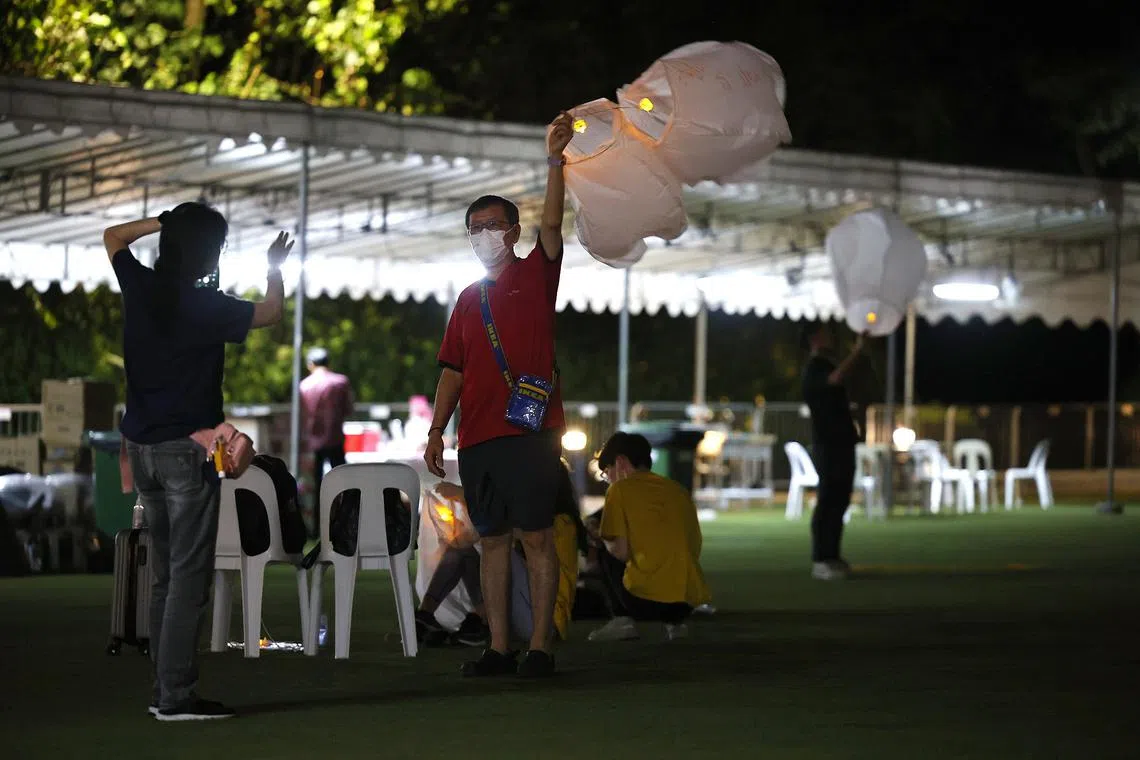Beauty industry consumers hit by 464% rise in prepayment losses in first half of 2025
Sign up now: Get ST's newsletters delivered to your inbox

The Consumers Association of Singapore said the high number of complaints in the first half of 2024 was accounted for by “a few high-profile incidents”, such as the botched Sky Lantern Festival.
PHOTO: ST FILE
Follow topic:
SINGAPORE – Consumers lost more than $108,000 after they paid in advance for beauty products and services that were never delivered in the first half of 2025, a near 500 per cent increase from a year earlier.
The Consumers Association of Singapore (Case) said on Aug 5 that the losses involving the beauty industry rose 464 per cent from $19,000 in the first six months of 2024, even though the number of complaints inched down from 600 to 558.
The organisation said the use of “aggressive or misleading sales tactics” made up about 28 per cent of these complaints.
“Many of these cases involved consumers being pressured into signing high-value packages under unclear or exaggerated promises,” Case added.
It highlighted one case that had a contract value of more than $370,000.
The complainant alleged that he was subjected to aggressive, high-pressure sales tactics, and that the company he dealt with “made false promises that were not fulfilled, offered misleading discounts and ultimately overcharged”.
Case president Melvin Yong said the beauty industry “remains a concern” due to the sharp increase in prepayment losses.
Overall, Case reported that there had been a 19 per cent drop in consumer complaints – from 7,721 to 6,253.
Case said the high number of complaints in the first half of 2024 was accounted for by “a few high-profile incidents”, such as the botched Sky Lantern Festival in February that year

Consumer complaints fell in the first half of 2025 compared with 2024, when “high-profile incidents” such as the botched Sky Lantern Festival (above) resulted in at least 400 complaints.
ST PHOTO: JASON QUAH
Car industry gets the most complaints
The car industry had the most complaints, even though the number dropped from 681 in the first half of 2024 to 573 in the same period in 2025.
About 28 per cent of these complaints in 2025 concerned vehicles that were defective or did not conform to contract terms.
Complaints involving car-sharing services fell from 109 to 97, but consumers continued to raise concerns about poor vehicle maintenance, billing problems, high insurance excess and service reliability.
Meanwhile, complaints involving electric vehicles (EVs) rose 42 per cent – from 33 in the first half of 2024 to 47 in 2025. These involved defective components, as well as charging issues.
“As more EVs take to Singapore’s roads, Case expects to see EV-related complaints increase in tandem. Consumers seeking to buy an EV should be mindful of issues related to charging and battery lifespan,” said Mr Yong.
Defective products, disrupted travel plans
Case reported 571 complaints against the electrical and electronics industry in the first half of 2025, down 4 per cent from the same period a year earlier.
Nearly half were related to products that were either defective or did not conform to contract terms, including small electronic devices bought online and larger household appliances, such as television sets and washing machines, bought at physical retail outlets.
Complaints related to the telecommunications industry, meanwhile, rose from 319 to 353, with customer dissatisfaction accounting for 24 per cent of them.
Of all the complaints Case received from the various industries, those concerning e-commerce fell 32 per cent from 2,611 in the first half of 2024 to 1,769 in the same period in 2025.
But Case observed a 40 per cent increase in complaints against online travel agents, with 139 cases reported in 2025.
The issues included misleading descriptions of hotel accommodations, website glitches that led to duplicate or inflated charges and confirmed bookings that were not honoured.
“With more transactions taking place online, we need to strengthen consumer protection in the e-commerce space, such as mandating merchant verification, establishing escrow accounts for e-commerce transactions, and having a clear dispute resolution framework for consumers to seek recourse,” said Mr Yong.
Another area of concern is the rising transaction value of the disputes lodged with Case. The values of home renovation contracts, for instance, currently exceed $20,000.
Case has called on the Government to review the current $20,000 jurisdiction limit of the Small Claims Tribunals to provide consumers with continued access to low-cost dispute resolution.


